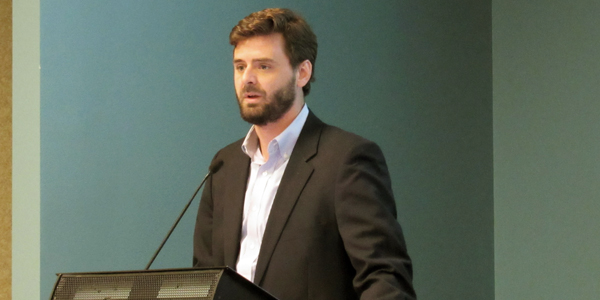By Amanda Durish Cook
CARMEL, Ind. — MISO has submitted a pre-emptive Section 205 filing to retain the option to allow new generators to self-fund interconnection transmission upgrades after the D.C. Circuit Court of Appeals vacated related FERC orders from 2015, stakeholders learned last week.
“We asked for the commission to issue an order within the requisite 60 days,” MISO counsel Mike Blackwell said during a July 17 Interconnection Process Task Force meeting.
MISO policy previously allowed incoming generators to self-fund new construction regardless of whether transmission owners wanted to fund the construction themselves. FERC in 2015 directed the RTO to remove the option for a TO to elect to fund the interconnection upgrades.
The D.C. Circuit in January vacated FERC’s decisions on the self-funding option, saying the commission didn’t consider complaints from Ameren and five other TOs who claimed the policy forced them to accept “risk-bearing additions to their network with zero return” and essentially act as “nonprofit managers” of network “appendages.” The TOs had argued the Federal Power Act and Constitution prohibits FERC from forcing them to construct and operate generator-funded network upgrades. The case was remanded back to FERC. (See MISO Awaits FERC Following Remand on Tx Upgrade Funding.)
MISO made two separate filings July 5: one to reflect the vacatur (ER18-1964), and the other to propose a revised option that removes the requirement that an interconnection customer must consent before a TO can fund an interconnection upgrade (ER18-1965), a move intended to preserve the option for generators to self-fund upgrades. If FERC agrees, the change would apply to MISO’s generator interconnection agreement, Facility Construction Agreement and Multi Party Facility Construction Agreement.
Fallout Undetermined
Blackwell said a FERC decision on MISO’s filing could affect GIAs dating back to 2015. In both early July filings, the RTO committed to working “with parties to GIAs executed since June 24, 2015,” over the next three months to “establish a process for reviewing and revising those agreements to reflect the legal consequences.”
Wind on the Wires’ Rhonda Peters asked if the impacts of the decision could render some past GIAs uneconomic.
“MISO’s intent is merely to bring its Tariffs up to a state that’s as current as possible. We haven’t analyzed the financial impacts for specific interconnection projects,” Blackwell said of the proposed revision.
Peters also asked what would happen if the terms of an upgrade change after it is already funded. Blackwell said he would consult MISO staff on the consequences of such a scenario before attempting to answer the question.
In its filing, MISO warned FERC that not accepting its agreement amendments in a timely manner could have dire consequences: “MISO estimates that agreements already in process contain millions of dollars of affected systems upgrades. … These agreements (and the parties to them) would be subject to significant confusion and uncertainty if the commission does not act promptly to accept this filing, and delays associated with such confusion and renegotiations of agreements of this magnitude could implicate the timely construction of these upgrades.”





